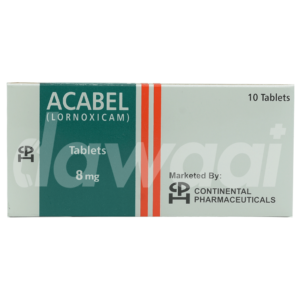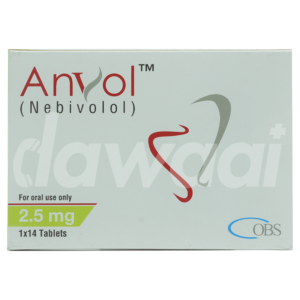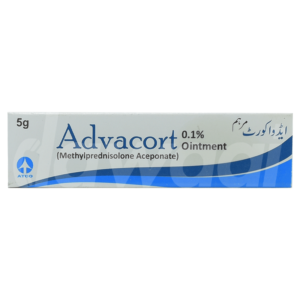Introduction
Expert Advice
INDICATIONS
This medication is used in the treatment of hypertension (increased blood pressure) as well as cardiovascular (heart and blood vessels) related events in patients with established atherosclerotic (hardening of blood vessels ) cardiovascular( heart and blood vessels ) disease. It is also used in patients with type 2 diabetes. With end organ damage.
CONTRAINDICATIONS
This medication is not recommended in patients with severe hepatic (liver) impairment and various other disorders of the gallbladder. It is also contraindicated in patients with hypercalcemia (high blood calcium ) and refractory hypokalemia (low blood potassium). For further details , consult your healthcare provider.
PRECAUTIONS
This medication should be used with extreme caution in patients with impaired hepatic (liver) function, and bilateral renal artery stenosis (narrowing of arteries supplying the kidneys). Mild to moderate renal(kidney ) impairment. It may also impair glucose tolerance . Patients with renovascular (blood vessels of the kidney) hypertension (high blood pressure) as well as elderly patients should be cautioned against the use of this medication.
SIDE EFFECTS
The patients administered with this medicine may experience respiratory tract infections, back pain, sinusitis (sinus infection), diarrhea, flu-like-symptoms, pharyngitis (inflammation of pharynx), weakness, fever, hyperkalemia (increased potassium levels), hypotension (low blood pressure), renal (kidney) failure, glaucoma (increased pressure in eye), and heart problems.
PREGNANCY
This medication should not be used in pregnancy.
LACTATION
This medication should not be used by lactating mothers.
Primary Uses
Hypertension
Indications
This medication is used in the treatment of hypertension (increased blood pressure) as well as cardiovascular (heart and blood vessels) related events in patients with established atherosclerotic (hardening of blood vessels ) cardiovascular( heart and blood vessels ) disease. It is also used in patients with type 2 diabetes. With end organ damage.
Side Effects
Patients using this medication may at times experience upper respiratory tract infections, back pain, and sinusitis. If you experience any of these symptoms for a prolonged period of time, please consult your doctor.
Warnings
 Pregnancy
Pregnancy
This medication should not be used in pregnancy.
 Lactation
Lactation
This medication should not be used by lactating mothers. Consult your doctor if there’s no other alternative medicine.
 Driving
Driving
Please avoid driving when taking this medicine as it may affect your ability to drive.
 Alcohol
Alcohol
Please avoid consuming alcohol when taking this medicine.
 Precautions
Precautions
This medication should be used with extreme caution in patients with impaired hepatic (liver) function, and bilateral renal artery stenosis (narrowing of arteries supplying the kidneys). Mild to moderate renal(kidney ) impairment. It may also impair glucose tolerance . Patients with renovascular (blood vessels of the kidney) hypertension (high blood pressure) as well as elderly patients should be cautioned against the use of this medication.
Contraindications
This medication is not recommended in patients with severe hepatic (liver) impairment and various other disorders of the gallbladder. It is also contraindicated in patients with hypercalcemia (high blood calcium ) and refractory hypokalemia (low blood potassium). For further details , consult your healthcare provider.
FAQS
Indications:
This medication is used for treating hypertension (high blood pressure), cardiovascular (involving the heart and its blood vessels) events in patients with atherosclerotic disease (plaque build-up inside arteries), and type 2 diabetes mellitus (disease characterized by glucose impairment) with specific organ damage.
Storage:
Please store this medicine at room temperature (18-25 Celsius). Keep medicine away from children, and excessive light and moisture. Read the leaflet provided with the medicine for further storage guidance.
Effects on pregnancy and lactation:
This medicine is not recommended for pregnant females. This medicine is not recommended for nursing females.
Side Effects:
The patients administered with this medicine may experience respiratory tract infections, back pain, sinusitis (sinus infection), diarrhea, flu-like-symptoms, pharyngitis (inflammation of pharynx), weakness, fever, hyperkalemia (increased potassium levels), hypotension (low blood pressure), renal (kidney) failure, glaucoma (increased pressure in eye), and heart problems.
Precautions:
The patients with impaired hepatic (liver) and renal (kidney) function, heart abnormalities, electrolyte disturbances, dietary salt restriction, primary aldosteronism (increase in aldosterone levels), and elderly should use this medicine cautiously.
Administration:
This medicine is mostly taken orally. The dosage is dependent on the severity of condition and response to treatment. Please consult your doctor before use.
Contraindications:
The patients with hepatic (liver) disorders and impairment e.g. cholestasis (reduction or stoppage of bile flow), refractory hypokalemia (decreased potassium levels), and hypercalcemia (increased calcium levels) should avoid use of this medicine.
Which medicines should be avoided with Amlodidpine?
As per FDA recommendation, simvastatin dosage should be limited to 20 mg daily while taking amlodipine. Also, all the CYP3A4 enzyme inhibitors like diltiazem, ketoconazole, itraconazole & ritonavir should be avoided while taking amlodipine.
I have been experiencing swelling in hands and foot since I started using the medicine. I amconcerned whether this swelling will persist?
You don’t need to worry about the swelling, as it is one of the very common adverse effects of the drug. This will go off once you withdraw its use. But you still need to consult your physician if the condition is getting worse.
When is it safe to discontinue the medicine?
You are not advised to do so abruptly nor are you supposed to make this decision by yourself. Consult with your physician, who will most probably advise for a gradual withdrawal. This is done to avoid the chest pain and relapse of high blood pressure, which is usually observed in such scenarios.
In what forms is the medicine available?
It is available in tablet, drops and I/V (intravenous) forms.
I am a patient of dialysis and have a history of getting treated for hepatitis C too. So, is the medicine safe for me?
No, the drug is not safe for any kind of kidney or liver disease. Consult your physician for an alternative.
What is the best time to take this medicine?
It doesn’t really matter at what time of the day you take amlodipine, but it is best to take it at the exact time every day, for more even blood levels & more effectiveness of the medicine.
Why taking this medicine at night is useful?
New research shows that administering blood pressure medicines at bedtime effectively helps to reduce your risk of illness or death due to blood vessel & heart disease. Timings are important as BP follows a daily rhythm. It is high during the day & falls at nighttime.
How much does this medicine help reduce blood pressure?
It is seen that titration of amlodipine from 5-10 mg every day in patients not responding to the treatment with 5 mg dose showed significant decrease in BP.
Disclaimer
Dawaai’s intention is to make sure that it’s consumers get information that is accurate, reviewed by an expert and error-free. However, the information mentioned here should not be used as a replacement for the advice of a qualified physician. The information given here is for informational purposes only, which may not cover all possible precautions, side effects, contraindications or drug interactions. Consult your doctor and discuss your queries related to any medicine or disease.






Reviews
There are no reviews yet.